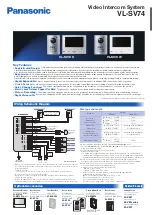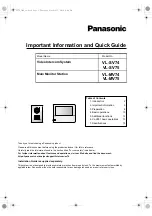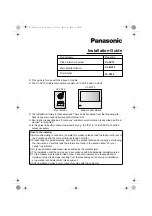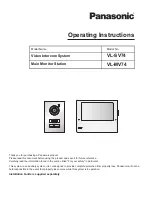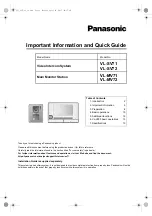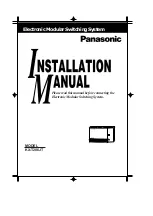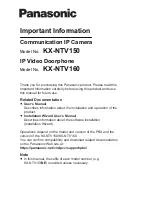74
Users Manual
IC
2
SERVICING and TROUBLE SHOOTING
GENERAL INFORMATION
Your IC2 steerable array contains no user-serviceable parts and all service should be referred to qualified service personnel.
Great care was taken in its design, however, to allow it to be serviced in the field without being removed from its mounting position. The
transducers can be replaced from the front of the column by removing the grille to expose the transducers and their mounting screws.
The 8-channel digital amplifier/DSP and associated power supply that are the heart of each 8-channel module is one single assembly that
can easily be taken out and replaced from the rear.
TROUBLE SHOOTING HINTS
GENERAL
Most IC2 setup and installation problems are “network problems” and not Iconyx or RHAON problems.
Your Iconyx array was factory tested before it left our factory and barring shipping damage should be in perfect operating condition.
Nevertheless, it is always a good idea to run a quick check on each module / array before taking it out to the job site and installing it.
If you should run into a problem at the site, it’s good to know the problem is in the network or the system wiring and not in the loudspeak-
ers.
Preset 10 on single arrays and Preset 20 on dual arrays are set to “Flat” and locked which sends an equal signal to all transducers for
use in amplifier and transducer testing. Otherwise, it’s difficult to locate defective amplifiers and transducers as the digital beam steering
reduces the drive to some transducers making it difficult to determine if a certain channel has failed or is operating satisfactorily. Because
the transducers are located so close together using your fingertips to feel cone vibrations is usually a better way to check than listening.
The Analog 1 input is always connected so it’s a simple matter to connect a line level analog signal to an array and check out its perfor-
mance.
COMMON AUDIO PROBLEMS
Hum
The most common sources of system hum are the program source or an improper or poor ground on an audio signal line. Check the pro-
gram source to make sure the hum isn’t originating there. Carefully check all the audio connections to make sure they are properly made.
Noise
Most noise problems are the result of improper grounding or of noise being induced into the audio signal line from adjacent noise sources,
such as fluorescent lights, and close proximity of the audio signal lines to lines radiating noise. Carefully review all the audio connections
and turn off all the lights and any other suspected noise sources.

